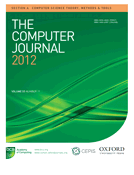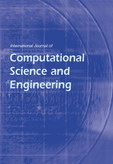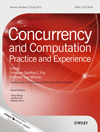
COMPUTER JOURNAL
Scope & Guideline
Fostering Academic Dialogue in the Digital Age
Introduction
Aims and Scopes
- Machine Learning and Artificial Intelligence:
Research in this area involves developing algorithms and models that enable computers to learn from and make predictions based on data. This includes applications in image recognition, natural language processing, and recommendation systems. - Cybersecurity and Privacy:
This focus area encompasses studies on intrusion detection, secure data sharing, and privacy-preserving techniques, particularly in cloud computing and IoT environments. - Data Analytics and Big Data:
The journal publishes research on methodologies for processing and analyzing large datasets, including novel algorithms for data mining, anomaly detection, and predictive analytics. - Networking and Distributed Systems:
This includes the study of network protocols, performance evaluation, and the design of secure and efficient communication systems, particularly in the context of IoT and cloud computing. - Graph Theory and Computational Mathematics:
Research in this scope covers theoretical aspects of graph structures and their applications in various domains such as network design, data structure optimization, and algorithm efficiency. - Quantum Computing and Cryptography:
This area includes studies on quantum algorithms, quantum cryptography, and their implications for traditional computing and security protocols. - Healthcare Informatics:
The journal features research on the application of computational methods to healthcare, including disease prediction models and medical image analysis.
Trending and Emerging
- Federated Learning and Privacy-Preserving Techniques:
With increasing concerns about data privacy, research on federated learning is gaining traction, focusing on methods that allow for model training across distributed data without compromising individual privacy. - AI in Healthcare:
The integration of artificial intelligence in healthcare is rapidly growing, with studies focusing on predictive analytics, medical image analysis, and personalized medicine becoming more prevalent. - Edge Computing:
Research on edge computing is emerging as a critical area, driven by the need for low-latency processing and real-time analytics in IoT applications. - Quantum Algorithms and Cryptography:
As quantum computing technology matures, there is a rising interest in developing quantum algorithms and addressing the security implications of quantum cryptography. - Graph Neural Networks:
The application of graph neural networks is gaining popularity for tasks such as social network analysis, recommendation systems, and biological data interpretation. - Explainable AI (XAI):
As AI systems are increasingly adopted, the demand for transparent and interpretable AI models is leading to a surge in research focused on explainable AI methodologies.
Declining or Waning
- Basic Algorithm Design:
There has been a noticeable decrease in papers focusing solely on foundational algorithm design, as the field has shifted towards more applied and interdisciplinary approaches. - Traditional Software Engineering Practices:
Research that strictly adheres to classical methodologies in software engineering is becoming less prominent, likely due to the rise of agile methodologies and DevOps practices. - Network Security Basics:
While cybersecurity remains a vibrant field, there is a decline in studies focused on traditional network security models, as researchers explore more complex, adaptive security frameworks. - Static Data Analysis Techniques:
Static analysis methods are being overshadowed by dynamic and machine learning-based approaches, which are seen as more effective for real-time applications and complex datasets. - Single-Domain Applications:
Papers focusing on applications within a single domain without interdisciplinary collaboration are less frequent, as the trend moves towards holistic, multi-domain solutions.
Similar Journals

JOURNAL OF INFORMATION SCIENCE AND ENGINEERING
Advancing Knowledge in Library and Information Sciences.JOURNAL OF INFORMATION SCIENCE AND ENGINEERING, published by the Institute of Information Science in Taiwan, is a pivotal platform for the dissemination of innovative research in the multidisciplinary fields of information science and engineering. Established in 1993, the journal primarily focuses on areas such as library and information sciences, human-computer interaction, hardware and architecture, as well as computational theory and software development. Despite holding a current Q4 ranking in several categories, the journal demonstrates significant potential for growth, particularly in computation and software systems, as evidenced by its Scopus rankings and percentiles. Researchers, professionals, and students will find this journal to be an invaluable resource to stay abreast of evolving theories and technologies in information science. The journal is accessible through traditional subscription models, fostering a broad academic outreach. It serves to enhance knowledge-sharing and collaboration within this dynamic and ever-evolving field.

Annales Mathematicae et Informaticae
Championing high-quality research for a dynamic future.Annales Mathematicae et Informaticae is a prominent academic journal published by E K F LICEUM KIADO, based in Hungary. Dedicated to advancing the fields of mathematics and computer science, this journal has been a significant platform for scholarly discourse since its inception in 1997. With an ISSN of 1787-5021 and an E-ISSN of 1787-6117, it aims to publish high-quality research that contributes to the broader understanding and application of mathematical and computational principles. As a Q4 journal in both the Computer Science and Mathematics categories for 2023, it showcases a diverse range of research findings. The journal operates with an open access model, ensuring that research is freely accessible to all, thereby fostering collaboration and knowledge dissemination. Recognized for its role in academia, Annales Mathematicae et Informaticae serves as a valuable resource for researchers, professionals, and students who aspire to stay ahead in these dynamic fields.

Frontiers of Computer Science
Exploring the Nexus of Theory and Application in Computer ScienceFrontiers of Computer Science is a leading peer-reviewed journal dedicated to advancing the field of computer science through the publication of high-quality research articles, reviews, and theoretical discussions. Published by HIGHER EDUCATION PRESS, this journal has gained significant recognition, currently boasting a prestigious impact factor and ranking in the Q1 quartile for both Computer Science (miscellaneous) and Theoretical Computer Science categories in 2023. With a focus on the intersection of computational theory and practical applications, it serves as a vital platform for researchers, professionals, and students alike who are eager to contribute to and stay updated with groundbreaking developments. The journal’s scope encompasses a wide range of topics, reflecting the diverse nature of computer science today. Operating from Beijing, China, it emphasizes Open Access, ensuring that vital research is readily available to the global academic community. With its convergence period spanning from 2013 to 2024, Frontiers of Computer Science remains committed to fostering innovation and scholarly dialogue that drives the future of technology.

Theory of Computing
Exploring the Depths of Theoretical FrameworksTheory of Computing, published by the University of Chicago, Department of Computer Science, is a prestigious journal that has established itself as a leading platform in the fields of Computational Theory and Theoretical Computer Science. With its ISSN 1557-2862, the journal has earned a reputation for high-quality, peer-reviewed research, positioning itself in the Q1 quartile for both Computational Theory and Mathematics, as well as Theoretical Computer Science as of 2023. Despite its limited open access options, the journal remains a vital resource for researchers and academics, providing insights that push the boundaries of theoretical frameworks and methodologies in computer science. The journal's commitment to rigorous scholarship serves to foster innovation and deepen understanding in a rapidly evolving field, making it an essential reference for professionals, students, and practitioners alike.

International Journal of Computational Science and Engineering
Connecting Ideas Across Computational DisciplinesThe International Journal of Computational Science and Engineering, published by InderScience Enterprises Ltd, is a premier platform dedicated to the interdisciplinary field of computational science and engineering. With an ISSN of 1742-7185 and an E-ISSN of 1742-7193, the journal has been serving the academic community since its establishment in 2005 and will continue to do so until 2024. Notably categorized in the Q3 quartile for various domains, including Computational Mathematics, Software, and Hardware and Architecture, it holds respectable rankings in Scopus, evidencing its importance in advancing research and practice. While the journal is not open-access, it offers subscription options that ensure wide dissemination among researchers, professionals, and students. The journal aims to publish high-quality original research articles, survey papers, and case studies that contribute to the theoretical and practical aspects of computational techniques and methodologies. In a rapidly evolving digital landscape, this journal is a valuable resource for those seeking to push the boundaries of knowledge in computational science.

International Journal of Innovative Computing Information and Control
Exploring cutting-edge theories in information systems.International Journal of Innovative Computing Information and Control, published by ICIC INT, is a prominent platform dedicated to advancing the fields of computational theory, information systems, software engineering, and theoretical computer science. Since its inception in 2007, the journal has garnered attention for its rigorous peer-reviewed research and has established itself within the academic community, attaining a notable Q3 quartile ranking across its categories as of 2023. With an impressive track record of convergence from 2007 to 2024, this journal offers a wealth of insights and innovations for researchers and professionals striving to push the boundaries of technology and computing. While it operates under a subscription model, the journal's commitment to enhancing knowledge in the ever-evolving landscape of computational sciences makes it an essential resource for academics, providing timely articles that address contemporary challenges in the field.

COMPUTING AND INFORMATICS
Unveiling Cutting-Edge Research in ComputingCOMPUTING AND INFORMATICS is a peer-reviewed academic journal published by the Slovak Academy of Sciences Institute of Informatics, focusing on various aspects of computer science and its applications. Established in 2000, this journal has garnered attention for its emphasis on computational theory, computer networks, software development, and hardware architecture, placing it in the competitive landscape of academic publishing with currently a Q3 ranking in the fields of Computational Theory and Mathematics, and Computer Networks and Communications, as well as Q4 ranking in Software and Hardware and Architecture categories. Readers can access its findings through Open Access, promoting wider dissemination of innovative research. With an ISSN of 1335-9150 and an E-ISSN of 1335-9150, the journal serves as a vital platform for showcasing cutting-edge research in the field, aiming to bridge theoretical foundations with practical applications. This journal not only contributes to the academic community but also supports the ongoing advancements in technology and informatics, making it an important resource for researchers, professionals, and students keen on staying at the forefront of the field.

CONCURRENCY AND COMPUTATION-PRACTICE & EXPERIENCE
Advancing Knowledge in Computational InnovationCONCURRENCY AND COMPUTATION-PRACTICE & EXPERIENCE, published by Wiley in the United Kingdom, serves as a pivotal platform for advancing research and innovation in the fields of computational theory, computer networks, and practical applications of computer science. With an impressive impact factor and recognition in the Q2 category for disciplines such as Computational Theory and Mathematics, this journal attracts a diverse range of scholarly articles that address the current challenges and developments in these areas. It boasts a comprehensive viewership with options for Open Access, enabling wide dissemination of knowledge. Indexed by Scopus with notable rankings in multiple categories, including a remarkable position in Computational Theory and Mathematics (Rank #41/176), the journal not only elevates academic discourse but also fosters collaboration among researchers, professionals, and students alike. As it progresses toward its 2024 milestone, CONCURRENCY AND COMPUTATION-PRACTICE & EXPERIENCE remains dedicated to publishing high-quality research that prepares its readership for the evolving technological landscape.

JOURNAL OF UNIVERSAL COMPUTER SCIENCE
Empowering scholars with open access to cutting-edge research.JOURNAL OF UNIVERSAL COMPUTER SCIENCE, published by Graz University of Technology's Institute for Information Systems and Computer Media (IICM), stands as a pivotal resource in the field of computer science. Since its inception in 1994, this Open Access Journal has fostered a culture of knowledge sharing and collaboration, allowing readers from all corners of the globe to access cutting-edge research without barriers. With an impressive convergence of studies spanning from 1996 to 2024, the journal covers a breadth of topics within Computer Science, achieving a Q3 ranking in miscellaneous areas and a Q4 ranking in theoretical computer science as of 2023. It also holds significant standing in Scopus rankings, demonstrating its influence and reach among the scientific community. The journal is particularly valuable to researchers, professionals, and students eager to explore innovative ideas and techniques that push the boundaries of computer science. Based in Austria, the journal is dedicated to maintaining high standards of scholarly integrity while promoting interdisciplinary discourse and advancements in technology.

Frontiers in Computer Science
Transforming ideas into impactful research in computer science.Frontiers in Computer Science is a premier open-access journal published by Frontiers Media SA that has rapidly established itself as a prominent platform for scholarly research in the diverse and evolving field of computer science. With a notable impact factor reflecting its high citation rates, this journal aims to disseminate innovative findings and groundbreaking studies across multiple subdisciplines, including Computer Science Applications, Computer Vision and Pattern Recognition, and Human-Computer Interaction. Since its inception in 2019, and with a consistent trajectory from 2019 to 2024, it has garnered accolades, achieving Q2 ranking in several categories and an impressive Q1 in miscellaneous areas of computer science. Researchers, professionals, and students alike are encouraged to contribute to this dynamic journal that serves as a vital resource for advancing knowledge and fostering collaborative dialogue in the global computer science community. Frontiers in Computer Science is committed to providing open access to research, promoting unrestricted sharing of ideas and fostering innovation at the intersection of technology and society.